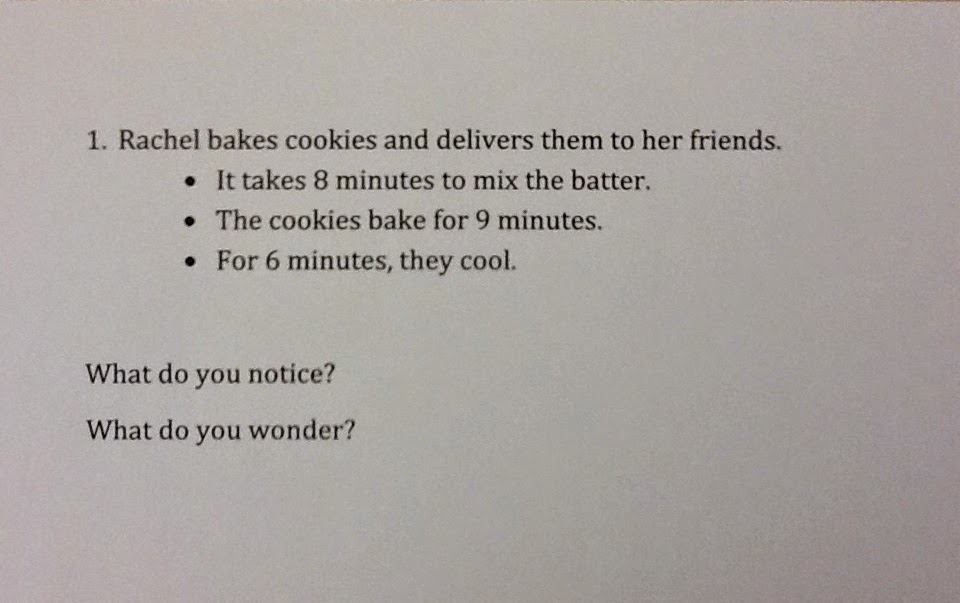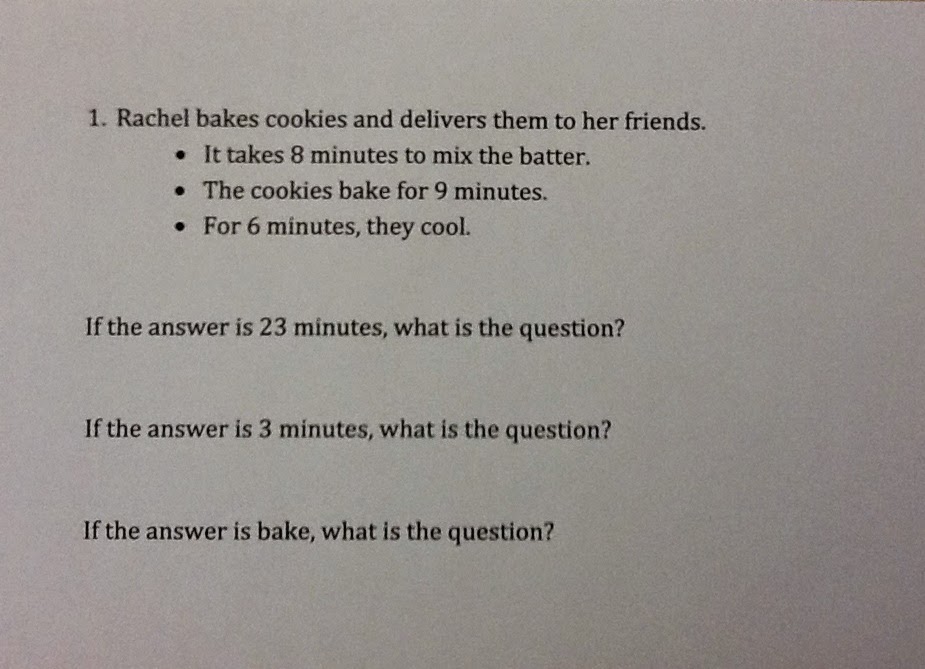"So 90 percent of what I do with my five hours of prep time per week is to take fairly compelling elements of problems like this from my textbook and rebuild them in a way that supports math reasoning and patient problem solving."
Dan Meyer, Math Class Needs a Makeover
Fair or not, worksheets, like textbooks, have a bad reputation. They conjure up images of quiet students sitting at desks in orderly rows, filling in blanks and bubbles. Busy work. But with a bit of imagination, along with some cut and paste, we can transform them into something a little more meaningful. Here are two recent attempts:
Example 1
Our district uses
Everyday Math. One of the nice features of its online component is access to differentiated worksheets. Searching for something to use with the fifth graders to complement our fraction work, I came across this:
I liked the idea behind this one. I had heard from both
Bill McCallum and
Phil Daro at the
AMTNJ conference in October that one of the intentions behind the Common Core standards was to emphasize mental math, number sense, and estimation by benchmarking, and I felt these questions hit that target. But there were some things I didn't like.
What first caught my eye was the title:
Why tell the kids that these are addition problems? Let them figure out what operation to use.
I cut it. Next, the directions:
Why tell the kids what strategy or tool to use? Let them figure it out!
I cut it. Left with more space, I moved the questions up and added boxes to give them space to explain their thinking. Here's the final product:
Example 2:
Our grade 2 teachers showed me this problem. They had copied it for their students to work on in a problem solving center:
Here is one suggestion: take off the question and replace it with a notice and wonder prompt:
 |
| This automatically lowers the barrier to entry. Another advantage to this approach is that the kids, through their wonderings, come up with questions of their own to solve. |
Here's another:
 |
| As one teacher at my school puts it, when we ask kids to engage in tasks like this it forces them to, "Use muscles they're not used to using." |
I'm not arguing that the questions on these worksheets are especially compelling, or that we're eliminating
pseudo-context. But for teachers that need to plan and prepare for science, social studies, reading, and writing, as well as math, and who may not have the time to
cover a file cabinet with post-its, or
fill a tank with water, making some small changes to the worksheets they have on hand can sometimes make a big difference.
"...finally, in total, just be less helpful, because
the textbook is helping you in all the wrong ways: It's
buying you out of your obligation, for
patient problem solving and math reasoning, to be less helpful."
Dan Meyer, Math Class Needs a Makeover








These are awesome makeovers, Joe! Thanks for sharing them. I'm hoping to get my K-5 colleagues tuned into the #MTBoS; this post will be a great way for them to start.
ReplyDeleteThanks Mark! I hope your colleagues find the suggestions helpful, and find many other ways to make over their worksheets.
ReplyDeleteHi Joe
ReplyDeleteYay! LOVE the way you stripped away the titles of the worksheets
Categorization is a skill unto itself
Too often chapters have the titles on the top of every page and it gives too big a hint!
I will be sharing your great Everyday Math modified worksheets with future elem teachers in my classroom on Monday thx soo much
Robin Schwartz
www.mathconfidence.com
College of Mt St Vincent Bronx NY
Thanks Robin! Maybe for homework they could try their hands at modifying one themselves. It might be interesting to see what they came up with.
DeleteI love the idea of changing up worksheets! I often get stacks of worksheets copied that I don't care to use (although the copy lady is learning not to include me), and this is a great way to incorporate them. I can chop of directions and "helps" and it becomes more student driven. Thanks for the insight!
ReplyDeleteYou're welcome! Good to know those worksheets won't go to waste now. I wonder what would happen if you gave them the worksheets with none of the directions or "helps" and asked them to see if they could figure out what they were.
ReplyDelete